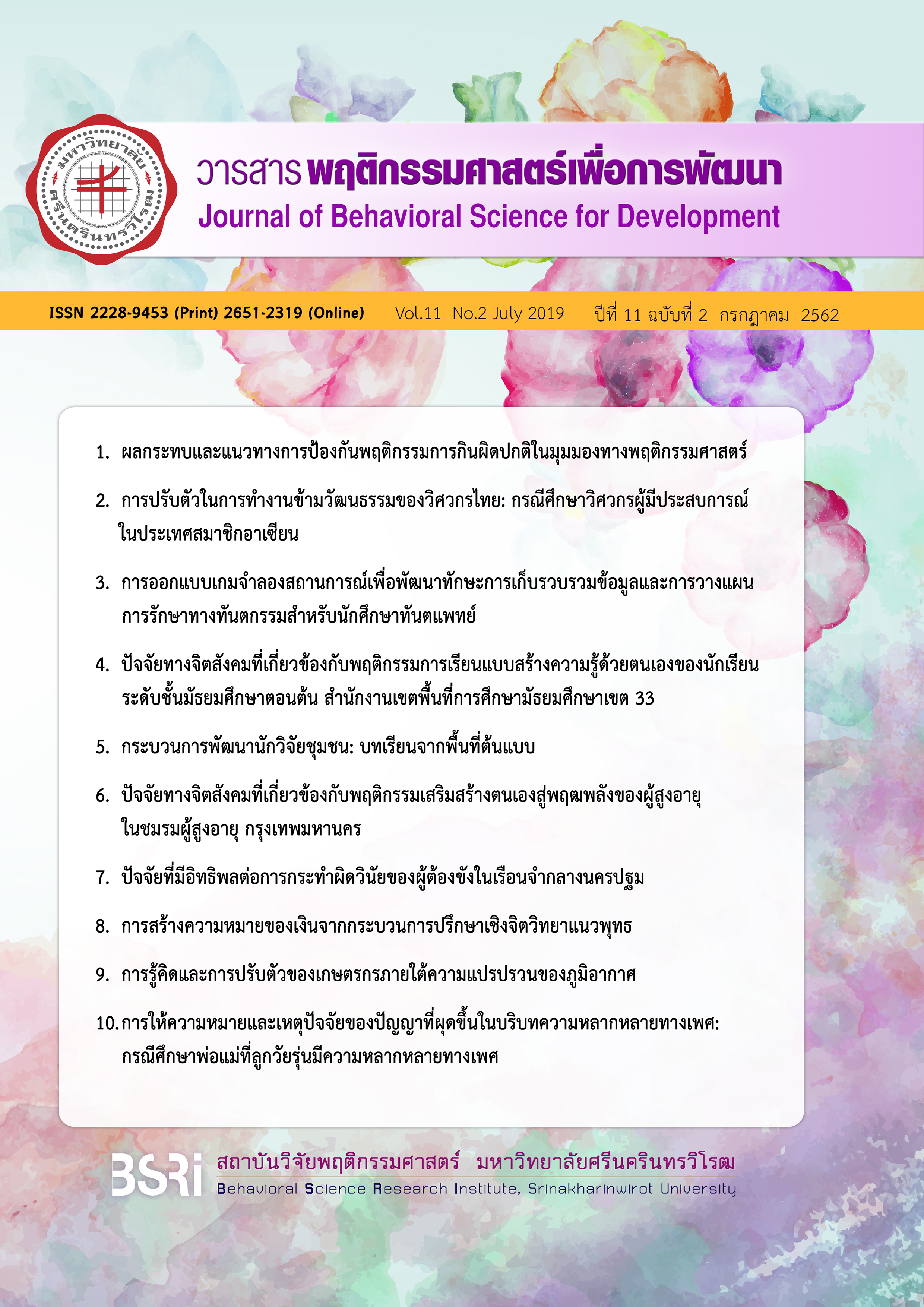A Grounded Theory of Cognition and Adaptation of Rice Farmers under Climate Variability
Abstract
Adaptation is an action taken to reduce objective vulnerability determined by risk and adaptive capacity. However, recent research has focused on the significance of psychological influences; that is, adaptation occurs through psychological process in perceiving risk and adaptive capacity based on objective reality. By using the grounded theory methodology, this research explores cognitive processes and uncovers conditions that determine risk perception and perceived adaptive capacity, in order to describe and explain farmers' adaptive patterns to climate variability. The study obtains data from in-depth interviews with rice farmers who have been affected from drought in non-irrigating area of Nongphra, Pichit. The study identifies different farmers' adaptation patterns: coping, repetitive, incremental, and transformative. These patterns can be understood by various cognitive conditions determining adaptation trajectories, namely, sense of security, fear of taking risks, exposure to climate information, and persistent tendency. Therefore, some policy implications to promote farmers' cognition to adaptation are to build risk awareness by communicating extensive risk information. Another suggestion is to build farmers’ resistance to impacts by providing farmers with knowledge and adaptive practices that are suitable to a local context, ensuring beneficial outcomes from adaptation.



